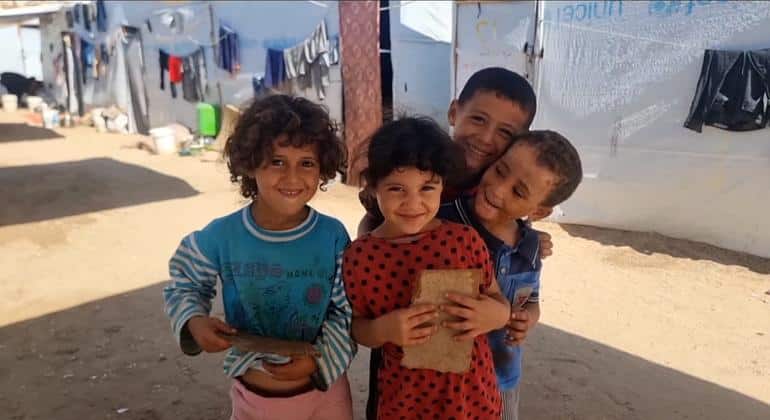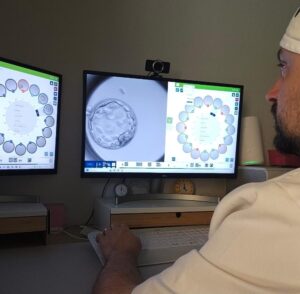The recent conflict in Gaza has left a devastating mark on the region, with over 41,000 people killed, according to the Palestinian Ministry of Health, the majority of them women and children. The humanitarian crisis is alarming, as nearly 90% of the population, made up of 2.3 million inhabitants, has been forced to flee their homes, confined to just 10% of the available territory.
In this context of adversity, initiatives like that of teacher Mahmoud Kallakh emerge, who has set out to offer a beacon of hope to those who have lost their loved ones. Kallakh has established a camp in Al-Mawasi, west of Jan Yunis, where he currently hosts around 400 displaced families, many of whom have lost the family’s economic support. His effort not only seeks to provide shelter, but also food assistance, medical care, and educational and social projects, with the support of UNICEF.
Kallakh has underscored the importance of education in this grim situation, establishing a school within the camp that offers educational benefits to the children. He emphasizes that creating a suitable learning environment is crucial, despite the precarious conditions, with families living in tents, a space he hopes to improve to promote the well-being of the students.
The tragedy has claimed the lives of thousands of children, and it is estimated that between 17,000 and 18,000 minors have been orphaned in Gaza, many of them without any family member to take care of them. Taleen Al-Hinnawi is one of these minors, who has lost her father and struggles to adapt to her new life in the Al-Baraka orphanage. The young girl shares her pain, remembering her father and longing to return home.
Another poignant testimony is that of Nada Al-Gharib, who has lost her father and only brother in an attack. Despite her immense suffering, Nada highlights the sense of community she has found in the camp, where everyone shares their stories of loss and pain, forming a sort of family.
As the war continues to affect the region, UNICEF warns of the catastrophic impact on children and families, with alarming figures indicating that over 14,000 children have died and thousands have been injured. The displacement situation is critical, with nearly 1.9 million people lacking access to food, water, fuel, or adequate medical care. The UN agency has urgently called for a humanitarian ceasefire and unrestricted access to aid for the needy families in Gaza.
Source: MiMub in Spanish












